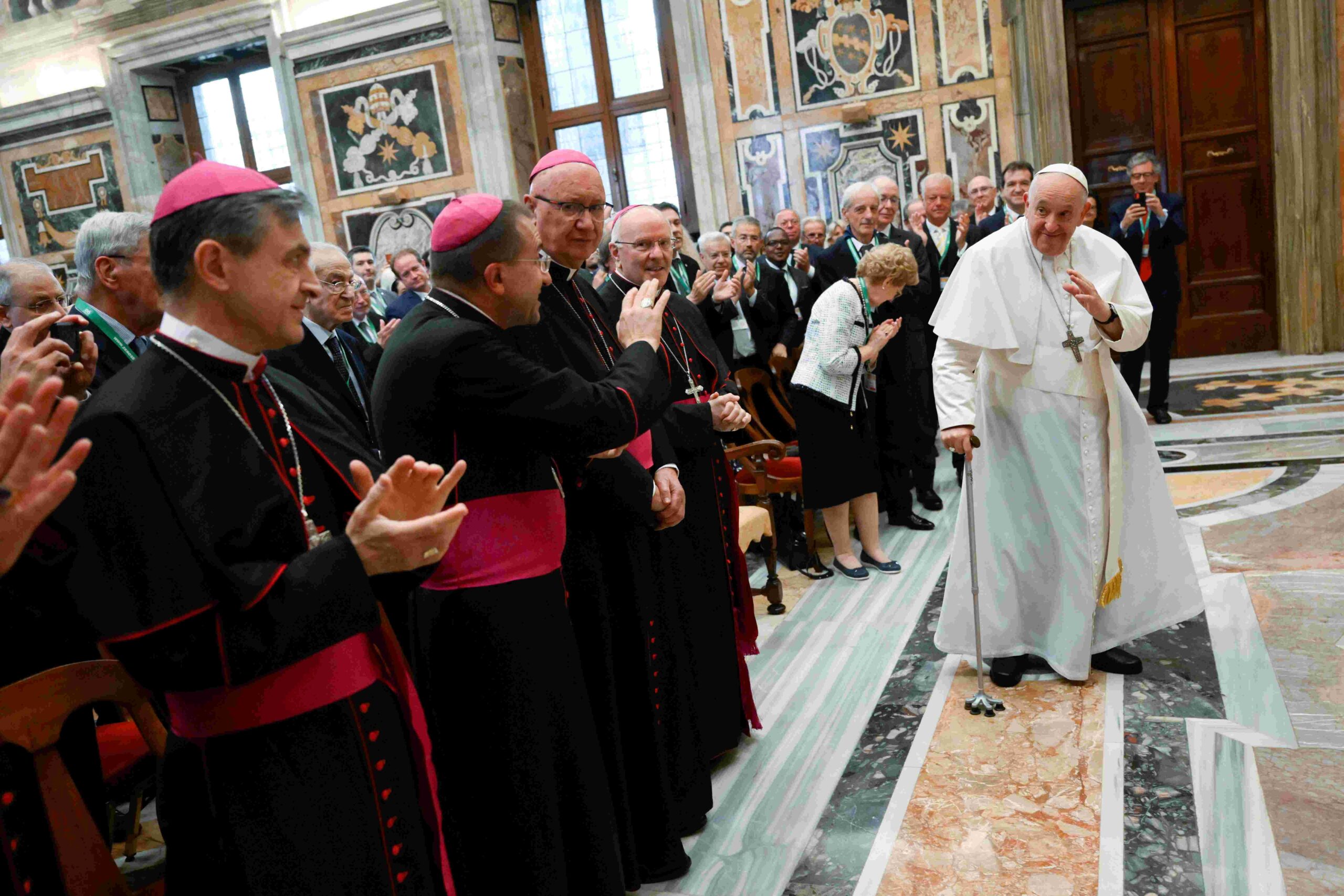By Carol Glatz, Catholic News Service
VATICAN CITY (CNS) — The world needs communities that “make room” for everybody and give voice to the voiceless, Pope Francis told members of a papal foundation.
In fact, the social doctrine of the Catholic Church is not just “a theory, but can become a virtuous way of life with which to build up societies worthy of men and women,” he said June 5 to members of the “Centesimus Annus” Foundation during an audience at the Vatican.
The Vatican-based foundation was celebrating its 30th anniversary and holding a conference in Rome June 5-6 on “Memory for building the future: Thinking and acting in terms of community.”
The foundation promotes the study and application of Catholic social teaching and also raises money for papal charities. It is named after St. John Paul II’s 1991 encyclical on Catholic social teaching, the economy and its impact on society.
Pope Francis praised the foundation for working to revitalize and turn the church’s teachings about the “centrality of the person, the common good, solidarity and subsidiarity” into concrete action over the past three decades.
“Many of you work in the economic sector,” he told the members. “You know how everyone can benefit from a way of imagining reality that places the person at the center, that does not belittle the worker and that seeks to create good for all.”
He repeated his warnings against an economy “that kills” and economic models that produce waste and foster “the globalization of indifference.”
The pope underlined the importance of Jesus saying “that no one can serve two masters: either you serve God” or money. “I expected him to say: the devil, but he doesn’t say ‘the devil,’ he says ‘money.’ Either you serve God or you serve money. Worse than the devil.”
“We have to look for what Jesus means in this: There is a message. Either you serve God or you are a servant of money. You are not free,” the pope said.
He encouraged foundation members to foster a sense of community, which should be “where each person can find his or her place” and to “give a voice to the voiceless.”
In order for a community to become a place “where the vulnerable and voiceless can feel welcomed and heard,” he said, everyone needs to pull “his or her ‘ego’ back a little bit, and this allows the other person to live.”
It also means, he said, that “the foundation of community needs to be the ethic of the gift and not the ethic of an exchange.”






